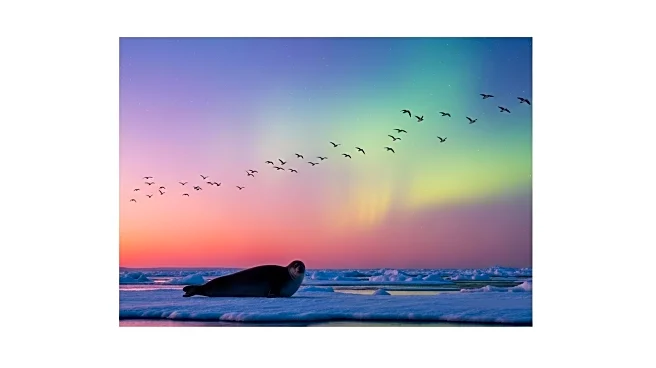What is the story about?
What's Happening?
The International Union for Conservation of Nature (IUCN) has released its latest Red List of Threatened Species, highlighting the increasing risks faced by Arctic seals and global bird species. Climate change is pushing Arctic seals, including harp, hooded, and bearded seals, closer to extinction due to the loss of sea ice, which is crucial for their survival. Additionally, more than half of the world's bird species are experiencing declines, primarily due to deforestation, agricultural expansion, and climate change. The report also notes the successful recovery of green sea turtles, demonstrating the potential for species to rebound with dedicated conservation efforts.
Why It's Important?
The findings underscore the urgent need for global conservation efforts to address the impacts of climate change and habitat destruction. The decline in bird populations serves as a warning of broader ecological disruptions that could affect biodiversity and ecosystem services. The plight of Arctic seals highlights the interconnectedness of climate change impacts on both wildlife and human communities, as melting ice contributes to extreme weather events. The success story of green sea turtles offers hope and a model for effective conservation strategies, emphasizing the importance of sustained efforts and international cooperation.
What's Next?
The upcoming United Nations climate summit in Belem, Brazil, will focus on the Amazon and the importance of tropical forests, potentially influencing global conservation policies. Conservationists and scientists are advocating for stronger commitments from world leaders to protect endangered species and their habitats. Continued monitoring and research are essential to inform policy decisions and conservation strategies. The IUCN's report may prompt increased funding and support for conservation initiatives, particularly in regions where species are most at risk.
Beyond the Headlines
The report highlights ethical considerations in conservation, such as the need to balance human development with environmental protection. It also raises questions about the role of wealthier nations in supporting conservation efforts in poorer communities, where resources are limited. The long-term implications of species decline could affect cultural heritage, as many communities have deep connections to local wildlife. The success of green sea turtles illustrates the potential for positive change, encouraging a shift towards more sustainable practices and policies.
















